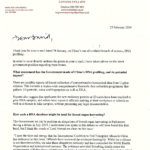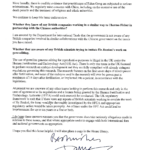.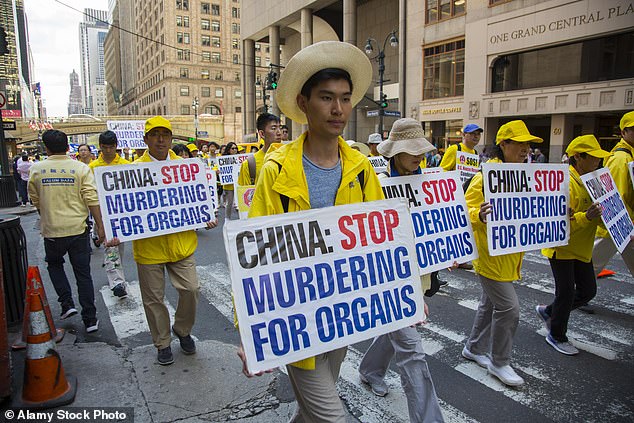
MEDIA RELEASE – Judgment -China Tribunal- 01 March – Final
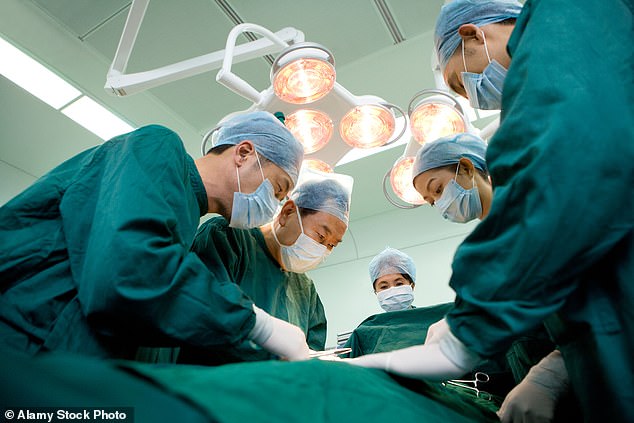
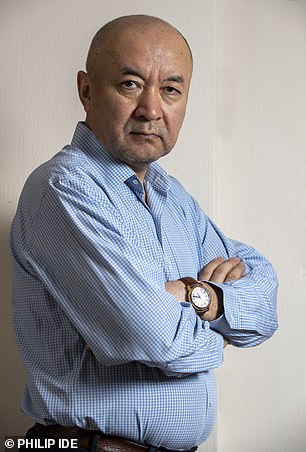
Enver Tohti, a former Chinese doctor
At 10:00am (GMT) today, the China Tribunal, for the first time, released its Full Judgement Report exposing China’s horrifying campaign of forced organ harvesting to the world.
Following the summary judgement published in June 2019, the full 150-page Full Judgement Report is the conclusion of the China Tribunal, and contains shocking new evidence of a continuing state-run programme of forced organ harvesting in China, which according to the Tribunal, constitutes one of the world’s “worst atrocities committed” of the century in modern times. The following are highlights from the Full Judgement :
- Undercover telephone call evidence reveals that former President Jiang Zemin (1993-2003) issued the order to harvest organs from Falun Gong practitioners
- Doctors from leading Chinese transplant hospitals admit, in undercover phone calls, that organs harvested from Falun Gong detainees are available
- Chinese Government official who calls himself “the butcher,” compares live organ harvesting to “slaughtering pigs… after scooping the organs out, I would sell them”
- Four methods of live organ harvesting exposed, including killing prisoners by removing organs, lethal injection and “organ harvesting under the pretext of brain death”
- Tribunal concludes with certainty that “acts of torture” have also been inflicted on the Uyghur population, of which “hundreds of thousands, and possibly millions” are imprisoned in China
- Testimonies expose widespread accounts of rape and torture against innocent victims, including graphic sexual violence and being “shocked” with electric rods. With one woman shocked until blind.
================================================
Newspaper Report: March 1st 2020
London Uber driver reveals how he killed a man by removing his liver and kidneys while working as a doctor in China amid claims the country is slaughtering thousands of its citizens to ‘harvest’ their organs
- International report to accuse China of covering up ‘crimes against humanity’
- Former doctor tells how he killed a man by removing his liver and kidneys
- There are growing fears Uighur Muslims are being used for supply of body parts
By IAN BIRRELL FOR THE MAIL ON SUNDAY
PUBLISHED: 22:01, 29 February 2020 | UPDATED: 07:33, 1 March 2020
China has slaughtered thousands of its citizens to harvest organs such as hearts, lungs, kidneys, eyes and even skin for sale and to transplant into sick patients in hundreds of hospitals across the country.
A landmark international investigation, published in full today, will accuse the Beijing government of covering up ‘crimes against humanity’ that have been routinely carried out against religious minorities.
The inquiry says the organised butchery of living people to sell body parts can be compared ‘to the worst atrocities committed in conflicts of the 20th Century’ such as the Nazi gassing of Jews and Khmer Rouge massacres in Cambodia.
- Witnesses spoke of forced organ harvesting going back decades. One former medical intern told the tribunal of a soldier who was tied up and shot but not killed, so that his kidney and eyeballs could be extracted while he was alive [File photo]
Sir Geoffrey Nice QC, a prominent war crimes prosecutor who led the probe, told The Mail on Sunday that there was such clear evidence of ‘systemic and widespread’ organ harvesting that international bodies should investigate if China is guilty of genocide.
‘There is a systematic programme to kill people. They have willing doctors, an enormous medical infrastructure, and it is by all accounts a very lucrative business,’ he said.
‘Our Government should accept it is going on and take appropriate action.
‘If you had clear evidence of crimes against humanity being committed closer to home in Europe, not only would the Government act but the public would demand they act. It should not matter this is on the other side of the world.’
Beijing has admitted – after first denying – regular use of executed prisoners for organ donation but strongly rejects allegations that it targets followers of Falun Gong, a banned spiritual group branded an ‘evil cult’ by Communist Party chiefs.
The Chinese government insists it has instigated a voluntary system of organ donation since 2015 – but this claim is undermined by substantial evidence gathered by the inquiry and analysis of ‘unbelievable’ official data by medical experts.
- Among those who spoke to the inquiry was Enver Tohti, a former Chinese doctor who is now an Uber driver in London after fleeing here in 1999. He told The Mail on Sunday that he was an oncologist in a hospital for railway workers when his chief surgeon asked if he would like to see ‘something wild’, ordering him to prepare a surgical team and instruments for the following day
An article in a Chinese medical journal even discusses the need to anaesthetise a donor in a heart-lung transplant operation, a procedure that would obviously lead to their death.
There are growing fears that Uighur Muslims in Xinjiang – who are being rounded up in vast numbers and imprisoned in ‘re-education’ camps – are also being used for supply of body parts after evidence that many have been forced to undergo medical tests.
Signs were also spotted recently at airports in western China – home to Uighur and other Muslim minority groups being terrorised by the state – for ‘special’ passengers directed through a ‘human organ transport channel’.
One was written in English as well as Chinese, which indicates it was to guide foreign visitors.
Investigations into ‘transplant tourism’ by a Japanese journalist uncovered prices of $200,000 (£156,000) for a kidney and $300,000 (£234,000) for a liver in 2013.
The China Tribunal was set up to focus attention on horrors taking place in the hospitals of the world’s most populous nation.
It believes they have carried out up to 90,000 organ transplant operations a year – far more than any other country.
The British Government, like most other Western nations and international bodies, claims there is insufficient evidence to back claims of systematic organ harvesting.
Yet one article published last year in a respected journal of medical ethics recorded that Chinese officials had admitted that only 130 of the 120,000 organ transplants between 1977 and 2009 came from voluntary donors.
The China Tribunal was initiated by the International Coalition To End Transplant Abuse in China, a group of academics, doctors, ethicists and lawyers.
Panel members included Professor Martin Elliott, former medical director of Great Ormond Street Hospital, and Prof Arthur Waldron, a leading US historian and Asia expert.
Its 556-page judgment admits it is difficult to get evidence but concludes ‘very many people have died indescribably hideous deaths’ due to ‘extreme wickedness’ that ‘beyond reasonable doubt… constitute crimes against humanity’.
Witnesses spoke of forced organ harvesting going back decades. One former medical intern told the tribunal of a soldier who was tied up and shot but not killed, so that his kidney and eyeballs could be extracted while he was alive.
The report highlights evidence from Wang Gouqi, a burns specialist, who told a US congressional committee in 2001 that he removed skin and corneas from 100 executed prisoners and some ‘victims of intentionally botched executions’. Gouqi said he learned the skills in a Beijing army hospital.
When the corpses of executed prisoners arrived in the autopsy room, doctors rushed to strip off the skin since it ‘could generate significant income, charged by the square centimetre’.
The report contains transcripts of taped conversations from investigators with a campaign group that called 80 different hospitals. Fifteen said they used Falun Gong donors and 14 more admitted using live organs. Demonstrators are pictured above in New York
Among those who spoke to the inquiry was Enver Tohti, a former Chinese doctor who is now an Uber driver in London after fleeing here in 1999.
He told The Mail on Sunday that he was an oncologist in a hospital for railway workers when his chief surgeon asked if he would like to see ‘something wild’, ordering him to prepare a surgical team and instruments for the following day.
The next morning, they drove to execution grounds on the fringe of Urumqi, where his boss told him to wait for gunshots.
After hearing gunfire, they drove as instructed around a hillock where they saw about ten dead prisoners on the ground.
‘They had been shot in the head so their foreheads were blown away. But there was one civilian in his 30s with hair, not a shaved head, who had been shot in the chest. I was told to remove his liver and two kidneys.
‘I assumed he was still alive because when I cut into him, blood came out so his heart must have been pumping. The body also reacted when I sliced in.
‘We had been taught that eliminating enemies of the state was our duty, so if he was sentenced to death he was an enemy of our state. But now I feel that I killed someone. That man died because of my actions when I removed his organs.’
Mr Tohti also said he examined three Uighur teenage boys who had gone missing, then returned with big U-shaped surgical scars consistent with kidney removal. Scans confirmed each had lost a kidney.
Most of the atrocities have been carried out on Falun Gong followers. Communist Party leaders launched a campaign in 1999 to eradicate the sect, a form of Buddhist meditation that attracted tens of millions of members.
‘They often exercise their bodies, so their bodies are very good,’ one prison doctor told a jailed Falun Gong follower, adding that if he crossed the Communist Party, ‘your heart, liver, spleen and lungs will be taken.’
Fiona Bruce MP, chairman of the Conservative Party Human Rights Commission, said she would seek a meeting with Foreign Secretary Dominic Raab following the China Tribunal’s judgement
Another who gave evidence to the inquiry was Yin Liping, 51. She said she was sent three times to forced labour camps before escaping China in 2013.
She was frequently tortured, imprisoned in solitary confinement and subjected to regular death threats as a Falun Gong member. While held in a camp in Liaoning province, she was taken to a hospital where guards held her down as blood was extracted, before she was dragged off for ultrasound and brain activity tests.
‘I was very scared,’ she said. Another witness, a medical engineer jailed in 2016, said that after a few months in prison he was taken by guards to its hospital.
‘I was forced to put my arm through a hole in a window. The nurse then wrapped a rubber band around my arm and put a needle into my vein and took two glass tubes of blood.’
He said only Falun Gong followers were given blood tests. ‘I was very afraid that I would be killed for my organs. I lived in fear that I would be killed until my release.’
The inquiry heard similar stories from Uighurs. One woman said she was hooded, stripped and forced to have medical tests, then taken to a hospital for examination. ‘Many women were taken from cells and they did not come back,’ she said.
Omir Bekali, a Uighur arrested in March 2017, told of having blood tests followed by organ scans while hooded and handcuffed.
‘When I heard them speaking about my examination, I was terrified they might open me alive to remove some of my organs to sell them. It was a very traumatic experience,’ he said.
Another witness forced to undergo similar tests in detention claimed the families of executed Uighurs were banned from seeing bodies or cleaning corpses, in keeping with their burial customs. He suspected this was due to removal of their organs.
The Mail on Sunday has seen footage reportedly shot in a Xinjiang hospital last summer showing huge numbers crammed inside and long queues outside.
A Uighur activist said it followed a sinister order for everyone in one city to undergo medical tests.
- He claimed that organs harvested from the country’s Muslim minorities were viewed as ‘halal’ because they were removed from people who had avoided pork and alcohol.
Saudi Arabian transplant doctors have admitted some patients buy organs on the Chinese market.
The report contains transcripts of taped conversations from investigators with a campaign group that called 80 different hospitals. Fifteen said they used Falun Gong donors and 14 more admitted using live organs.
Zhu Jiaxin, head of a security agency in Mudanjiang, was recorded boasting in June 2016 about his role in organ harvesting: ‘After slaughtering and opening up the belly, you just carve out the organs and sell them.’
He brags that his nickname is ‘The Butcher’, saying: ‘It is nothing – just like slaughtering pigs.’
The tribunal details extensive torture, including rape and sexual abuse. Several witnesses mention the ‘Tiger Chair’, which locks a prisoner by the arms and legs before a helmet is placed on their head to deliver powerful electric shocks.
Its judgement concludes ‘with certainty’ that Christians and Tibetan Buddhists have been jailed and tortured in similar ways but finds ‘insufficient evidence’ that they have been killed for their organs.
One damning finding is the availability of organ transplants on demand – a stark contrast to Western nations such as Britain, where sick patients can wait for years before a suitable body part becomes available.
There are growing fears that Uighur Muslims in Xinjiang – who are being rounded up in vast numbers and imprisoned in ‘re-education’ camps – are also being used for supply of body parts after evidence that many have been forced to undergo medical tests
Jacob Lavee, one of Israel’s top heart transplant surgeons, told me that in 2005 he learned a patient was travelling to China for a new heart – the first such case he had come across.
The operation was fixed for two weeks ahead – yet this organ must be moved within four hours of a donor’s death for successful transplant. ‘The only way this could happen was if someone was being executed,’ he said.
After seeing several more patients following suit, he and other doctors persuaded the Israeli parliament to ban the purchase, funding and sale of organs.
More than 40 British MPs backed a motion for a similar measure.
Last year, Prof Lavee and two fellow experts published a paper in a medical journal that concluded China was engaged in ‘systematic falsification’ of official data, which shows transplant cases more than doubling over the past five years.
They found ‘contradictory’ and ‘implausible’ figures that included ‘mis-classification of non-voluntary donors as voluntary’ along with willing donations ‘incentivised by large cash payments’.
Prof Lavee has no doubt the majority of the 712 transplant hospitals in China used organs from unethical sources such as prisoners held on religious grounds.
He said: ‘Chinese physicians are not only involved in mass murder and crimes against humanity but the international community and World Health Organisation for some reason shut their eyes against these crimes.’
‘This is a deeply concerning issue that merits more serious scrutiny by our Government and the international community,’ she said.
Share this article:
London Uber driver reveals how he killed a man by removing his kidneys while working as a doctor
====================================
Also read the UK Government’s response on DNA Profiling in China and the implications for the Uighur people.
.
Organ Trafficking: Sanctions: Question in The House of Lords
02 March 2020
Question
2.44 pm
Asked by
Lord Hunt of Kings Heath
To ask Her Majesty’s Government, further to the response by Lord Ahmad of Wimbledon on 23 January (HL Deb, col 1148), whether the proposed United Kingdom autonomous global human rights Magnitsky-style sanctions regime will apply to persons engaged in (1) illegal organ trafficking, or (2) obtaining organs for transplant without consent.
The Minister of State, Foreign and Commonwealth Office and Department for International Development (Lord Ahmad of Wimbledon) (Con)
My Lords, we will soon lay secondary legislation for the UK’s first autonomous sanctions regime under the Sanctions and Anti-Money Laundering Act 2018. The work is complex, and it is important to take the time to get this right. This sanctions regime will allow us to impose sanctions in response to serious human rights violations or abuses around the world. As it is not yet in force, it would be inappropriate to comment on the specific aspects of the scope.
Lord Hunt of Kings Heath (Lab)
My Lords, I welcome what the Minister has said and the action that is being taken to introduce the sanctions regime he has referred to, but he will know that I have recently been sent a report from the World Organization to Investigate the Persecution of Falun Gong which shows that over 7,000 doctors in China are involved in the systematic killing of prisoners through the horrific enforced body harvesting trade in that country. Could he assure me that, notwithstanding what he has just said, the Government will none the less look sympathetically at taking action under these new provisions in order that these doctors are brought to book?
Lord Ahmad of Wimbledon
My Lords, I note and pay tribute to the noble Lord’s work on this. I assure all noble Lords that the whole purpose of the scope of the sanctions regime is to ensure that we hold individuals who abuse human rights to account for their actions, whatever the basis of those human rights—indeed, I remember many a debate in your Lordships’ House on this legislation—and whatever the abuse.
Baroness Northover (LD)
My Lords, the China Tribunal has concluded that China’s forced organ harvesting constitutes a crime against humanity. I know the noble Lord takes his responsibilities as Minister for Human Rights seriously. Has he read the China Tribunal’s report? A draft was out about six months ago, and it has now been finalised. If he has, does he agree with it? I note that he did not raise this issue at the Human Rights Council the other day.
Lord Ahmad of Wimbledon
My Lords, on that final point, as the noble Baroness will know from her own experience as a Minister, when you are at international fora you are very much time-limited on all the issues, and the exclusion of a particular issue does not mean that there is not a focus or priority attached to it. She will know that the final report was issued yesterday; it is 562 pages long. I have not yet read it, but we are considering it and I will respond to her in detail once we have done so more fully.
Lord Alton of Liverpool (CB)
My Lords, in his reply to the noble Lord, Lord Hunt, the Minister said that he would not make a preliminary decision, yet in a letter to me on 25 February the Government said that, having consulted the World Health Organization and Beijing, their view is that China is implementing
“an ethical, voluntary organ transplant system”.
How does that square with the China Tribunal’s findings that organised butchery of living people compares to
“the worst atrocities committed in conflicts of the 20th century”,
including the gassing of Jews by the Nazis and the Khmer Rouge massacres in Cambodia? Will he revisit the full report referred to by the noble Baroness, Lady Northover, published this weekend, a copy of which I sent to him, and look at the inquiries and investigations carried out by one of the Sunday newspapers published yesterday, which I have also sent him and which detail these horrendous crimes committed against both Falun Gong practitioners and Uighur Muslims?
Lord Ahmad of Wimbledon
My Lords, my Sunday afternoons would not be the same without emails from the noble Lord. I assure him that I have underlined my commitment and the commitment of Her Majesty’s Government to the important issues raised in relation to the Falun Gong. As I said to the noble Baroness, Lady Northover, we will respond once we have fully considered the details of the report. The noble Lord rightly raises those details and the details of other reports, one of which was issued today on human rights issues and the plight, particularly, of Uighurs in China. We raise this in multilateral fora and the Uighurs issue was mentioned in my contribution at the Human Rights Council last Tuesday.
Lord Anderson of Swansea (Lab)
My Lords, the Government have had powers to make Magnitsky-style regulations—visa bans and asset freezes—since the passage of the Criminal Finances Act 2017 and Sanctions and the Anti-Money Laundering Act 2018. Why the delay? It cannot be EU membership, as other EU members such as Lithuania and Latvia have Magnitsky-style regulations.
Lord Ahmad of Wimbledon
My Lords, there is no sense of a lack of priority. I assure the noble Lord that we are very committed to this sanctions regime. Indeed, my right honourable friend the Foreign Secretary has made it a personal priority. The noble Lord points to issues and the use of other restrictions. We have had those levers at our disposal. Only last week, when answering a Question on another country—the Kingdom of Saudi Arabia—I reassured noble Lords that we have used levers at our disposal, including visa restrictions.
Lord Collins of Highbury (Lab)
My Lords, last July I had the opportunity to ask the Minister a question precisely on the WHO and its definition of whether what is going on in China is ethical. He replied that the Chinese are saying that. Last July, he undertook to raise with the WHO our concern about the farming of organs and this continuing atrocity. What has happened since July? Have we continued to put pressure on the WHO?
Lord Ahmad of Wimbledon
The short answer to the noble Lord is yes; we have taken up direct conversations and consultations with the World Health Organization. I put on record again that the allegations that have been raised in various reports, including the final report conducted by Sir Geoffrey Nice, raise questions that need to be answered in the context of that report. I know the noble Lord is aware that the view of the World Health Organization remains that China is implementing an ethical, voluntary organ transplant system, in accordance with international standards, although it has now raised concerns about transparency. I assure the noble Lord that we will continue to prioritise this issue and that of human rights within the context of China.
Baroness Blackwood of North Oxford (Con)
My Lords, I thank the Minister for his commitment to consider the report, as his department develops the regime. While he does, will he have in mind the standards that we implement through the Human Tissue Act 2004? It puts consent as the fundamental principle underpinning lawful storage and use of body parts—organ and tissue? This is the level of consent we expect of international standards for an organ transplant system.
Lord Ahmad of Wimbledon
It is always a challenge when a former Health Minister asks you a pointed and specific question, but the answer to my noble friend is yes. Across the piece, the United Kingdom prides itself on the standards it sets. Those standards also determine how we prioritise particular issues and human rights concerns on the world stage.
Lord Foulkes of Cumnock (Lab Co-op)
My Lords, there have been some confused reports on human rights in the media over the weekend. They seem to have confused the European Court of Justice with the European Court of Human Rights. Will the Minister confirm that it is still the intention of the Government to play a full, constructive and positive role in the European Court of Human Rights, to continue to adhere to the European Convention on Human Rights and to participate fully in the work of the Council of Europe?
Lord Ahmad of Wimbledon
In all those respects, the Government’s position is clear. We continue to uphold the issue of human rights, not just in a European context, but globally. On the final question, we remain very much committed to the Council of Europe, and I was pleased recently to see the Prime Minister approving the new nominations to it.
======================
Baroness Williams of Trafford, the Home Office, has provided the following answer to your written parliamentary question (HL1704):
Question:
To ask Her Majesty’s Government how many applications have been received for British National (Overseas) passports in each of the last three years, broken down by month. (HL1704)
Tabled on: 24 February 2020
Answer:
Baroness Williams of Trafford:
The figures provided for 2019 can only be reported up to the end of June 2019 as these figures are reported within the Home Office transparency figures and cannot be published separately at this time.
| Month | BN (O) applications received in 2018 |
| January | 1,779 |
| February | 1,464 |
| March | 1,677 |
| April | 1,642 |
| May | 1,765 |
| June | 1,681 |
| July | 1,866 |
| August | 1,726 |
| September | 1,337 |
| October | 1,911 |
| November | 1,780 |
| December | 1,821 |
| Month | BN (O) applications received in 2017 |
| January | 1,734 |
| February | 1,573 |
| March | 1,798 |
| April | 1,558 |
| May | 1,820 |
| June | 1,742 |
| July | 1,906 |
| August | 1,797 |
| September | 1,669 |
| October | 1,871 |
| November | 1,526 |
| December | 1,413 |
| Month | BN (O) applications received in 2019 |
| January | 2,139 |
| February | 1,753 |
| March | 2,581 |
| April | 2,957 |
| May | 3,492 |
| June | 5,532 |

